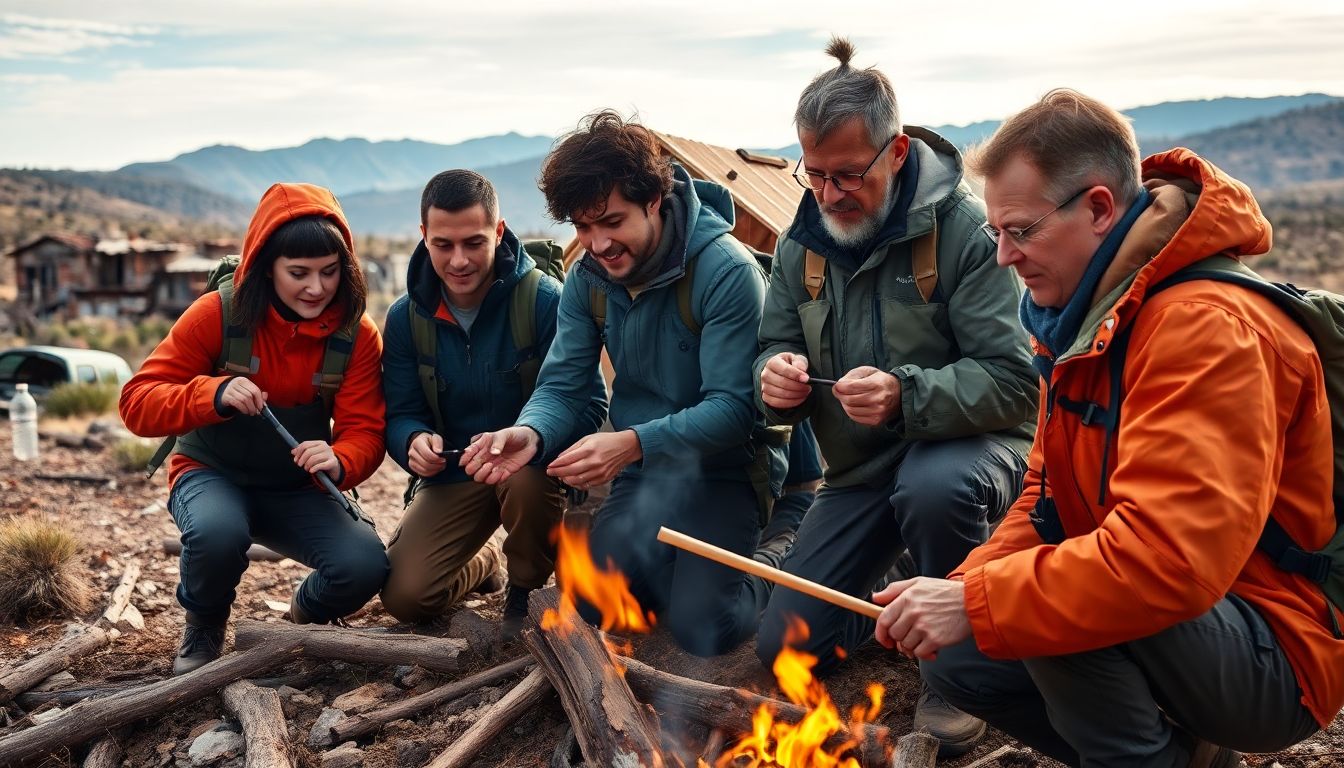Imagine a storm. Power lines are down; all the stores are closed. Can you survive? Disaster preparedness is the answer. Disaster Survival Skills, LLC has got you covered. They offer training and resources. This article is about planning, skills, first aid, navigation, and protection.
Assessing Your Risks and Developing a Plan
The first step is knowing what might happen. Make a plan for you and your family to get them safe.
Identifying Local Hazards
Where do you live? What kind of disasters are likely? Earthquake? Hurricane? Flood? Find out what risks exist in your area. Contact your local emergency management agency. It’ll tell some of the most important things to know. You know your risks, and you prepare better.
Family Communication Plan
What if you were not together when disaster strikes? Have a plan to connect. Pick meeting spots. How will you talk? Text? Radio? Everyone should know the plan and practice it-sends panic away during hard times.
Creating a Complete Emergency Kit
Emergency kits can save lives. Go for a 72-hour stockpile. Don’t forget tools! And put them all inside a backpack. A radio, flashlights, and knives may come handy. Check it every half-year.
Using the Basic Survival Skills
There are skills relating to survival that apply to various situations. Learn how to start a fire. Find a source of clean water. Build a shelter.
Fire Starting Techniques
Fire keeps you warm. It cooks food. Fire also signals for help. One can learn how to start a fire without matches. Friction methods work. Use a bow drill or hand drill. Practice these before you need them.
Water Procurement and Purification
Water is worth searching for. Locate places where natural occurrences yield water, such as in streams or from the rain. Clean it. Boil it. Filters remove dirt; and chemical tablets work as well. Always purify water before drinking it.
Shelter Building
Shelter is essential in protection against elements. Use whatever natural materials are available. A simple lean-to can be made from branches and leaves. Tarps are also useful. Find a location in the absence of winds. Keep your shelter small and cozy.
Advanced First Aid and Medical Preparedness
First aid is important. Be prepared for wounds and sickness far from help.
Treating Common Injuries and Illnesses
This will cover simple best practice wound care. How do you treat cuts? Burns? What about sprains? Know about fractures. Be well aware of the common illnesses-derangements, with fever or diarrhea which lead into dangers for a person.
Making a Complete Medical Kit
A good kit includes more than just band-aids. Be sure to put in there any medicines you need and include some pain relievers and some antibiotics as well. Antiseptic wipes are pretty important. Having a first aid guide might help.
Understanding Wilderness Medicine Basics
Use nature to help you. Some plants relieve pain; others wash wounds. Get this knowledge of natural medicines and improvise when necessary. Use cloth as bandages, using sticks to splint a broken bone.
Navigating and Communicating About a Disaster
Stay on course – Let others know your location.
Map Reading and Compass Skills
GPS on your device could fail. Be able to use the map and compass. Knowing how to find where you are. Practice and learn how to use a compass. Orient map with it. Walk on bearing.
Signaling for Help
Sight yourself. Flash light off a mirror. Flares are great at night. Create large ground signals, spell rocks out creating “HELP”. Make it gigantic.
Using Communication Devices
Listen to update channels through radios. Satellite phones work when cell phones don’t. Keep them charged; know how to use them. Save battery life.
Protect Yourself and Your Property
Stay safe from getting hurt. Secure that which is yours.
Basic Self-Defense Techniques
Have a knowledge of self-defense. Know simple blocks and strikes. Be aware. Avoid dangerous places. Be ready to defend yourself if needed.
Secure Your Home
Board windows. Lock doors. Protect against damage. Prevent looting. Make your house look less appealing to criminals.
Community Preparedness
Work with your neighbors. Help each other. Find resources and skills together. A strong community is going to survive better. Plan together, practice together.
Conclusion
These skills would greatly help you in surviving a disaster. Do advance planning. Learn basic skills. You should have first aid training. Know how to navigate. Self-defense and property protection are advised. Come on over to Disaster Survival Skills LLC for assistance. Contact them for more training. Prepare to be great. Stay safe.
